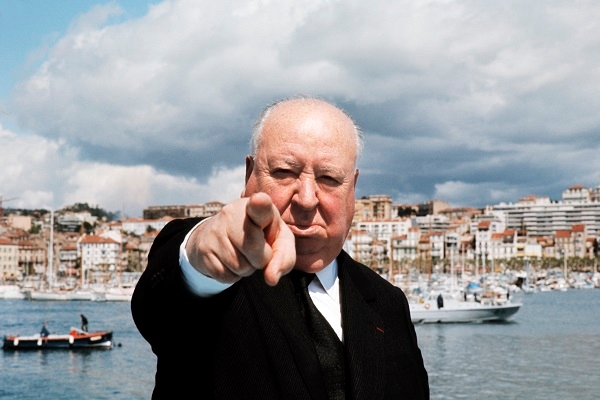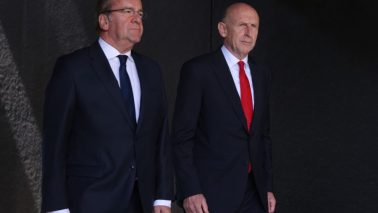For the last 40 years it’s been impossible to interview Anthony Hopkins without him doing his Tommy Cooper impression. He’s obsessed with the bloke, constantly interrupting Silence of the Lambs anecdotes to do Cooper’s chuckle and hand flicking and patter. He was, therefore, the absolutely perfect choice to play Alfred Hitchcock. Actually, the new film’s not that bad. It tells a good yarn about the director’s wife Alma rescuing both him and Psycho, not to mention the 800 grand of their own money they’d sunk into the movie. The other actors are so good that most of the time you can almost forget Anthony Hopkins is wandering around in the middle of it all wearing a ridiculous fat-suit, itching to throw in a ‘just like that’.
The film is based on Stephen Rebello’s book Alfred Hitchcock and the Making of Psycho. Can’t tell you about that, because I haven’t read it. The book I do want to recommend is from the 1980s, and is called The Last Days of Alfred Hitchcock. It’s by David Freeman, a screenwriter hired to work on Hitchcock’s film The Short Night. It’s read-it-in-a-morning short, and if you like William Goldman’s Adventures in the Screen Trade or Peter Biskind’s Easy Riders, Raging Bulls it’ll be a morning well spent. Freeman deploys the dusty wit and economy of style that Hollywood writers have in their bones, largely because they spend most of their time writing film scripts, where one line does the work of six chapters. He gives us great details about Hitchcock the man, such as him turning down a knighthood because ‘they’re really only good for impressing shopgirls’. Finally he relented, and was for the last few months of his life Sir Alfred.
There’s also some top-notch analysis of the great man’s craft. He always put his famous cameos near the beginning of movies, ‘or else the public would only be waiting for me, and not watching the story.’ He gives the young Freeman a lesson on the difference between shock and suspense. Some men are playing poker, and a bomb goes off under the table – that’s shock. But if, before the game begins, you cut to the bomb, its clock ticking, and then one of the players folds, quickly leaving the room, showing he knows something the others don’t, and then the ticking gets louder … that’s suspense. The 2013 film shows Alma as a heroine, but Freeman has a different take. He cites the cut she insisted on in Vertigo simply because she thought Kim Novak’s legs looked fat: it ruins the logic of a chase scene. Hitchcock also reveals an unemotional attitude to his work. Of Psycho: ‘I don’t care about the subject matter; I don’t care about the acting; but I do care about the pieces of film and the photography and the sound track and all the technical ingredients that made the audience scream … They were aroused by pure film.’ And by melons, those being the fruits used to create the stabbing sound effects in the shower scene.
But the book’s real strength is its human tale of a once-great man sliding into unemployability. At first in awe, Freeman soon realises that Hitch has become unhitched. He rambles nonsensically during script conferences. His drinking proves a real problem; studio execs try and keep him away from the sauce, but he hides a bottle of brandy in the bathroom of his office, keeping it wrapped in – get this for a movie cliché – a brown paper bag. Freeman realises the sad truth: The Short Night is never going to get made. Eventually Hitchcock realises it too, resigning his position at Universal. But even as the workmen clear out his office he clings on, getting one final shave from his barber Nino while the desks and filing cabinets are carried out around him. A few days later he comes back and just sits there, the one remaining phone echoing around an empty room. Several months later he dies.
The tragedy of Hitchcock’s life is well-known: self-loathing because of his size, a constant yearning to be seen as normal, even sexually desirable. It led to some unpleasant behaviour, as documented by Toby Jones’s excellent portrayal in the recent BBC4 drama The Girl. What David Freeman’s book gives us is the conclusion of the tragedy, the final few pages of the script. As with most life-stories it’s complicated and messy. Perhaps that’s why Hitch preferred ‘pure film’.






Comments